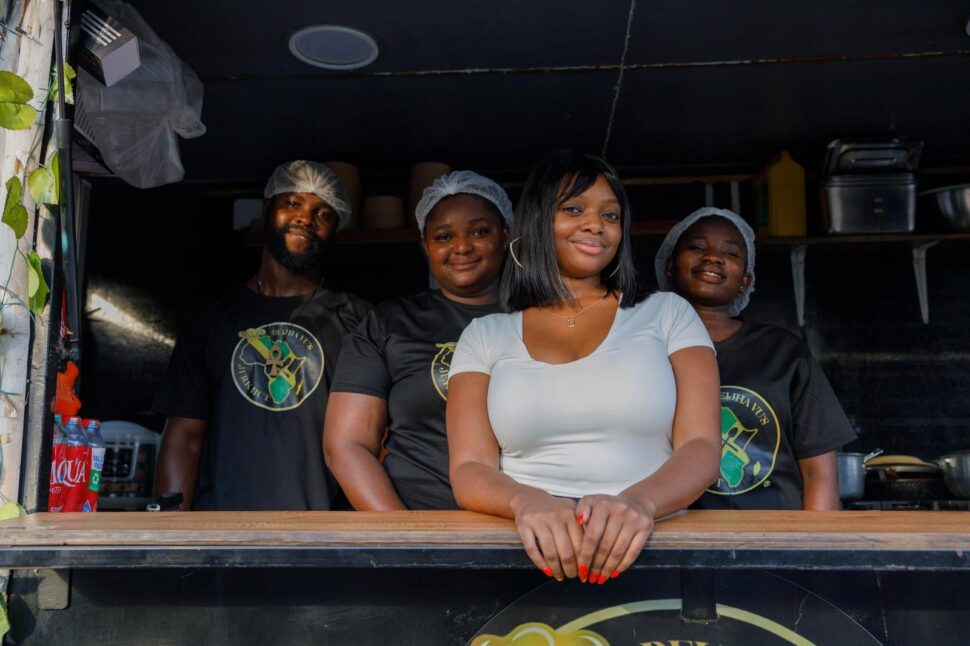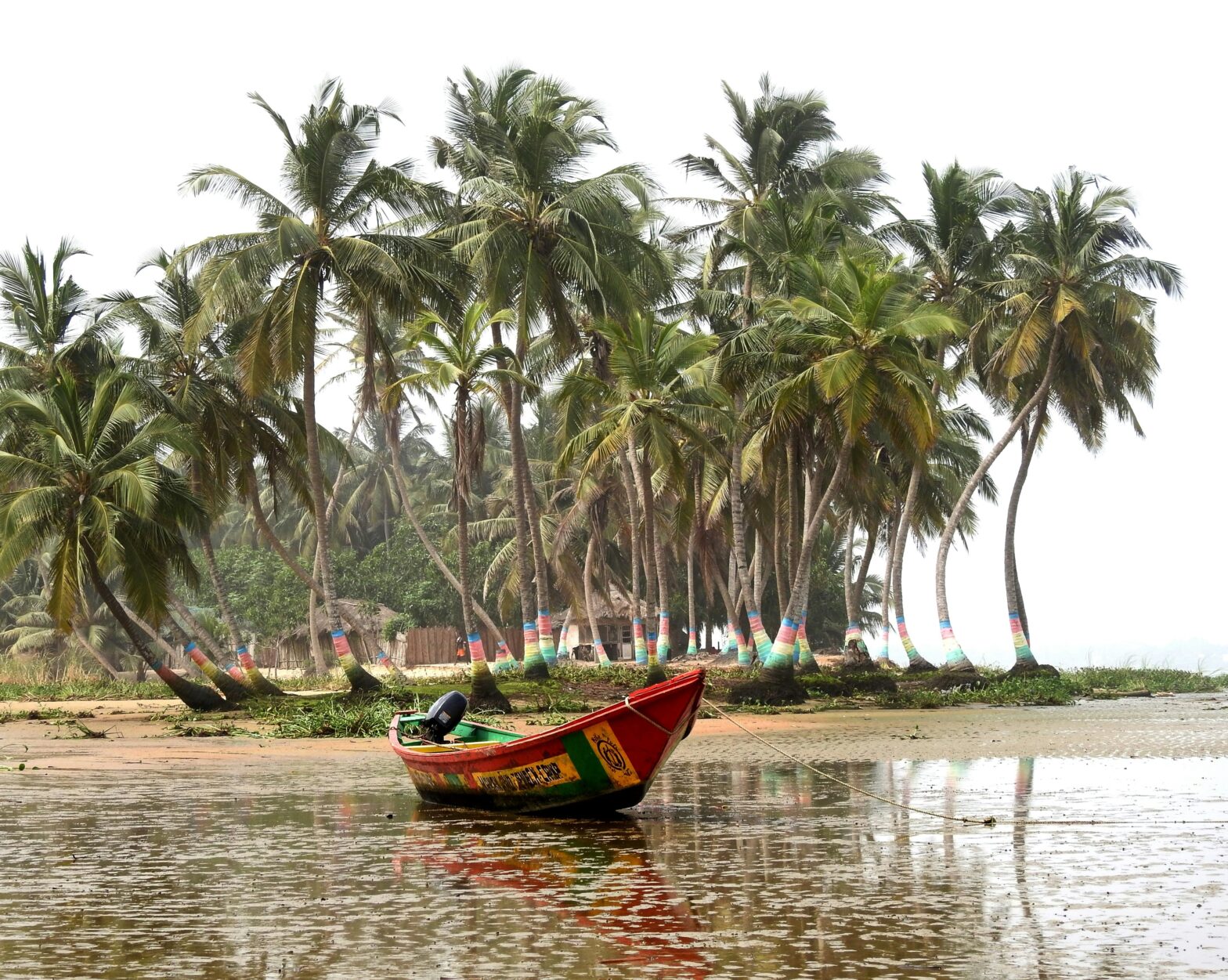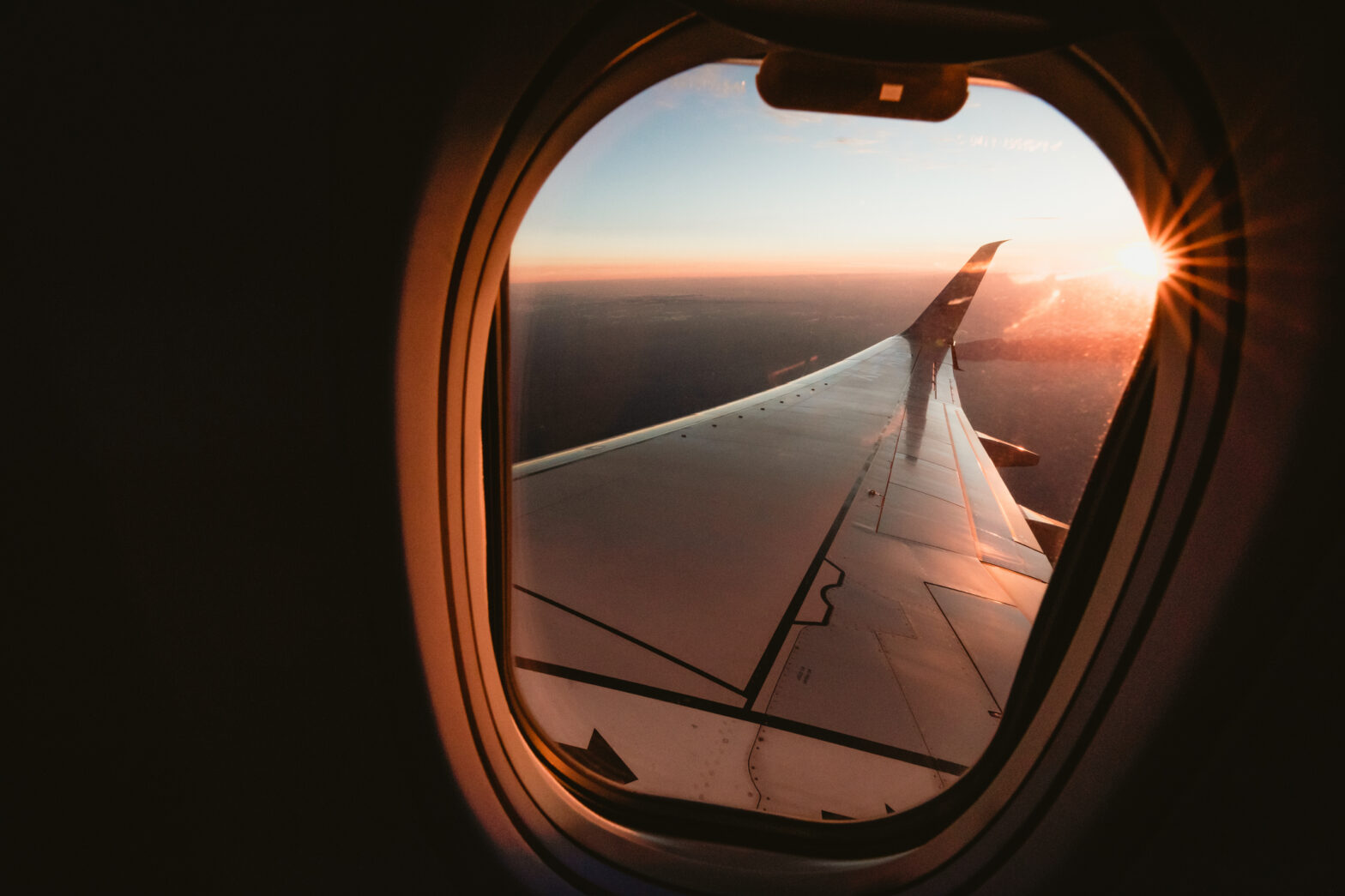Over the last few decades, the Black expat population has grown in Ghana among the African diaspora. These numbers have significantly increased since Ghana’s iconic “Year of Return” initiative that invited people of African descent to visit, connect with their ancestral roots, and relocate to Ghana.
According to the Philadelphia Inquirer, an estimated 1,500 Black Americans have relocated since 2020. In November 2024, Ghana granted over 500 African Diasporas Ghanaian citizenship. For many Black expats who have relocated to Ghana, there is a consensus that Ghana offers peace and a sense of freedom unlike anywhere else in the world.
Travel Noire caught up with two Black expats to discuss their experiences in Ghana, having either become citizens or spent time as expats, and how the West African country has had a lasting impact on them.
From Burnout To Food Truck and Citizen
In 2019, Deijha Gordon moved to Ghana after feeling burned out in New York City. She was working at the post office and knew she wanted more out of life within the first three years. A trip to Ghana in 2015 with a childhood friend planted the original seeds.
“When I first stepped off the plane, I was so amazed by the welcoming atmosphere and the culture,” Deijha told Travel Noire in 2020.
It’s been 10 years since that life-changing trip, and so much has changed since relocating in 2019. She opened the Jamaican Food Truck, Deijha Vu’s Jerk Hut, and is officially a Ghanaian citizen. Here’s how Deijah is faring today.

Travel Noire: Can you talk to us about your life now compared to when we first interviewed you?
Deijha Gordon: I understand the grounds of Ghana more now, and I am a bit more established. There’s still more work to do with entering a new country, culture, and starting a business, but my quality of life is better. In New York City, everything felt so fast-paced, and there was so much pressure to have life figured out. In Ghana, life is more laid back, peaceful, and slower-paced.
TN: Where are you now with your business?
DG: After I started my business, the pandemic hit, and I was stagnant for a few years. I was trying to build a restaurant and put so much money into the space, but I never got to use it. At one point, I didn’t have any more money, and I had to go back to the drawing board, so I decided to start my food truck. I found a new location, and things started picking up. One day, after I parked the truck, Jessie Woo came along with other celebrities and influencers, and everything took a turn for me.
It’s been humbling. The fact that people return to my food truck has been the motivation to keep going. Right now, I only have three staff members, and they are so amazing. My plan now is to franchise. An opportunity has come up to put a food truck in Nigeria, so I’m working on that now.
I also wrote a book called Trust The Process. It is available on Amazon. The book is about the thoughts I had of having this idea and executing it. It talks about what I have gone through and how I prepared as an entrepreneur. Now, I’m at a different stage in my life, so I am planning to write another book about maintaining everything.
TN: Are there any habits or mindsets that you’ve had to unlearn since leaving New York City?
DG: The pressure of being in a hurry and feeling like you have to have it all figured out. Also, this is personal, but as a Black American woman, I feel like I have to be so independent and do everything by myself, whereas in Ghana, people want to help you, even with the little things. They do it without a feeling like you owe them something. I had to learn to accept that.
TN: Do you feel moving to Ghana and becoming a citizen has changed your life?
DG: It has changed my life tremendously. I am not the same person that I was a few years ago. Sometimes, when I come back to America, I’m ready to leave and go back to Africa. However, anyone considering moving here should be patient with Ghana because it is still a growing country and economy.
People sometimes paint it to be this perfect picture there, and that’s when people begin to feel disappointed. I would still recommend that you visit first, see the land, and see how the people are. Go to the markets, talk to the locals, talk to your Uber drivers, and then make that move. I don’t recommend people simply sell everything and move.
Three Years Of Feeling Safe And Unpacking Black Trauma
Illustrator Nicole Updegraff and her family moved to Ghana in 2015 after her husband was assigned to work in the country for three years at the U.S. Embassy. Ghana was a transformative experience for the mom of four because it was the first time in her life that she experienced the feeling of freedom.
“When you grow up in the U.S., there is a heaviness and weight that is on our shoulders. There’s an armor that you have to put on when you go outside because you don’t know if you are going to experience racism or other microaggressions,” she tells Travel Noire. “Those feelings were gone in Ghana. I remember telling a friend, ‘I imagine this is what white people feel in the United States.’”
In Ghana, she recalls not worrying about interactions with police or being conscious of her race. It was quite the juxtaposition against what was happening in America at the same time.
Updegraff lived in Ghana during a period of unrest in the U.S. following a series of police killings of Black boys and men, including 18-year-old Michael Brown, 32-year-old Philando Castile, 12-year-old Tamir Rice, and 37-year-old Alton Sterling. Being in Ghana was more than relief; it was safety.
During her time in Ghana, Updegraff said there was a significant amount of healing and reflection that took place. While she has since moved back to the United States with her family, she said Ghana changed her perspectives in a way that she believes Black Americans and diasporans should experience.

Travel Noire: The theme of your time in Ghana seemed like a time of reflection and healing. What did you have to unlearn while there?
Nicole Updegraff: There are a couple of things. First, I learned that it was okay to ask and receive help. We had a nanny named Ms. Paulina, a housekeeper, and a gardener, but I was reluctant at first.
When a new family like ours moves into a new country, you typically move into a house that was occupied by the previous embassy staff you are taking over for. The people who were there had a live-in housekeeper and chef. I remember saying, “I don’t need anyone taking care of me and my children.”
Looking back, I was hyper-independent when it came to mothering and as a wife. But I finally said yes. Ms. Paulina and our staff were my lifeline. They were the people who held me and supported me from the moment we arrived. They became our family.
Also, when we told people we were moving to Accra, everyone would tell us that it was a metropolitan city. Well, I’m from Los Angeles, and I left expecting not necessarily Los Angeles, but the same experience.
[I would get frustrated] with the power outages. We were lucky enough to have a generator, but if you ran out of petrol, for example, then there was no air conditioning. And God forbid a mosquito gets caught in your mosquito net at night. One time, I remember waking up with mosquito bites on my lips and the palms of my hands. At first, I let these minor things get in the way of being able to really enjoy my experience.
TN: Talk to us more about how you maintained your expectations and what helped you with adjusting.
NU: I had Ghanaian friends, a community, and immersed myself in Ghana. I was a part of the community and showed respect. For example, I called my elders auntie or uncle, and children would do the same for me.
TN: What advice would you give to people who are considering relocating to Ghana or spending extensive time there?
NU: Number one, be completely open-minded. Don’t go somewhere comparing it to the places that you’ve been because that can be a recipe for disappointment. I also want to encourage people who have the opportunity to experience a place like Ghana, where people look like you. You will be amazed at the freedom. You don’t know how heavy the weight of being Black in America is until you don’t have to carry it.
TN: It’s been 10 years since you lived in Ghana. Looking back, what did Ghana etch in your heart forever?
NU: I felt anchored in Ghana as a Black American. Also, being able to put my feet on the soil in Africa allowed me to feel connected in a way that I didn’t realize I hadn’t felt connected to anywhere else before. Ghana made me feel like I always had a place to go home.
This article has been edited and condensed for length and clarity.





